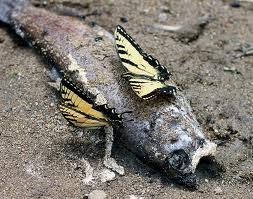That's the thought that has dominated my thinking for the past week or so as the great phone hacking scandal rocks Britain.
Daily there are new revelations of how reporters from the News of the World hacked into people's mobile phones or paid private detectives to do it for them or the police for stories. The whole country is angry. Yet the people at the top claim that they were completely unaware of these practices, express their own outrage, and promise to get to the bottom of it.
Maybe so. But even if that is true, surely they are the ones who created the culture where the boundaries of morals, common decency and adherence to the law were flouted to such an extent. What do you think?
If you agree you will also think that makes them bad leaders. And even if you don't, the fact that this was going on at all on "their watch" makes them bad managers. Perhaps they are both. Either way, you have to question whether they deserve to keep their jobs.
Pending the results of police investigations and judicial inquiries, that appears to be what is happening. The owners' response to the crisis was to close the paper down and lay off the 200+ staff. However, they did not fire the people at the top. Even worse they initially asked the person in charge at the time of the offences to lead the internal investigation! It makes you think, doesn't it?
Double standards certainly seem to be rampant – and on two counts.
Firstly executives generally justify their huge earnings on the contribution they make to the company. They argue that they set the direction, formulate the strategies and create the culture that leads to success. Fair enough. But then, surely they have to be culpable when things go pear-shaped. In this case, things have gone more than pear shaped: the biggest circulation newspaper in Britain has been closed in a week after 168 years. That has to be a massive failure in anyone's books, doesn't it? Yet there are no immediate consequences for these executives.
Then there is the question of attitudes to employees. Could the newspaper have been as successful and as incredibly profitable as it was without its people? Yet they have lost their livelihoods. One investment analyst even described this as "The Slaughter of Innocents." So what message does that send out, not just within the organisation, but to the world at large? How can you expect to get buy-in to your employee engagement efforts when such behaviour spells out very clearly that employees are second class citizens? As long as there are different rules for managers and employees, you will never create employee engagement.
Yet there is more here than a crisis of leadership – specific or generic. There is also a crisis of ownership.
Does the fact that he is the principle shareholder entitle Rupert Murdoch to make a unilateral decision to close down the paper? Perhaps legally, yes. But morally? This is an important issue.
Shares in large companies can become a market commodity rather than a commitment to the business. When this happens shareholders can make more money by trading shares and maximising the share value becomes a key issue. When this happens it is all too easy to forget the core business: why it exists in the first place and who else depends on it. Investment, not ownership, becomes the focus. Profits rather than value become paramount. And thus there is not the same long-term focus that you normally attribute to ownership.
On the other hand, in the Knowledge Age, the greatest proportion of business value is in the people. So, because of their mutual dependency, you can argue that employees have more of a vested interest in the long-term than the shareholders (or the executives who are rewarded in shares.) Thus they are now more capable of playing the role of owner than the shareholders. You would do well to recognise and address this.
Unfortunately, as events here so clearly show, no-one seems to. No-one recognises or accounts for the value of their people. Thus their value is totally ignored and their fate is at the mercy of people who have none. This can lead to the unthinking destruction of value and leave the wider community to deal with the fallout. This cannot continue. There is a crisis of ownership and you can only address it by ensuring a system of employee ownership which balances investor needs with the wider need. At the same time it might also reduce the likelihood of widespread News of The World type unethical practices in the first place.

